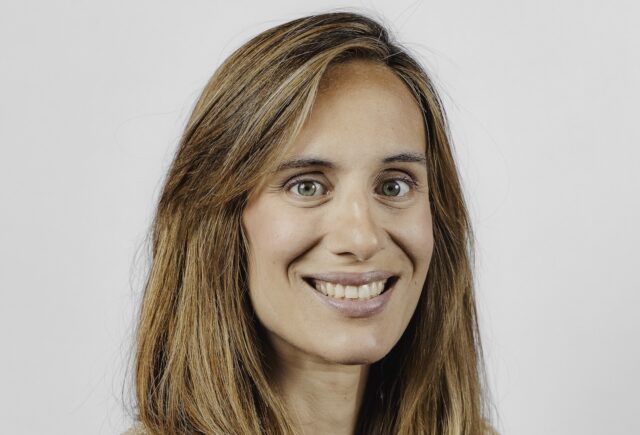The new Netherlands Advisory Board on Impact Investing strives to break down the barriers to scaling impact investments. It wants to be the ‘convening power’ that brings investors together to solve systemic challenges.

CV
- Founding Managing Director Netherlands Advisory Board on Impact Investing, 2020-present
- Chairman of the Board of Directors REGMIFA (Regional MSME investment fund in Sub-Saharan Africa), since May 2019
- Head of Investment at Cordaid, an INGO in the Netherlands, 2013-2018
- Independent finance consultant, 2005-2013
- Director Equity Syndication, ABN Amro Rothschild London, 2001-2005
- Assistant Director ECM Origination at ABN Amro Rothschild in Paris, 2000-2001
- Assistant Director Equity Advisory at BNP in Paris, 1995-2000
After more than two years of paving the way as a volunteer, Laure Wessemius-Chibrac launched the Netherlands Advisory Board on Impact Investing (NAB) in November. While 32 other countries already had a national board on impact investing, it took quite a while to get one off the ground in the Netherlands.
The initiative was met with some scepticism, founding managing director Wessemius-Chibrac says. “Dutch investors are quite advanced when it comes to sustainability and the market has already many networks and platforms,” she notes.
“People were wondering about our added value, but when we were explained that our role would be to help break down the barriers to scaling impact investments, they realised we have a role to play.”
The former banker is very clear on her goal: doubling the size of impact investments within the next three years. “Each sub-sector of the market is quite developed and organised, but now we need each other, all the different groups of stakeholders, among themselves and between the groups to collaborate to get to the next phase [of impact investing],” Wessemius-Chibrac says.
“We don’t want to compete with any of the other networks. We want to have the convening power to bring the different market players to the table to work together on the systemic issues and to be a knowledge broker.”
“Scale and impact”
Several ‘aha moments’ led her from being a banker for ABN Amro in London to running the small start-up that is the NAB. “I was a happy banker in London; never asked myself questions about my legacy until my first child was born in 2004. What do I do to let my child grow up in the best possible conditions?”
“I was working very long hours in banking,” she says. “I only really saw my child during the weekends. We decided to move to the Netherlands. I left the bank to work as an independent finance consultant.”
As a volunteer, she worked on the green economy initiave for a European network of women and she was involved with the NOTS Foundation. This work, she says, inspired her more and more to work on making an impact.
When she saw that Cordaid, a large NGO, was hiring a director for their impact investments, she never thought they would hire her as a ‘bad banker’, lacking NGO and development finance experience. “I applied thinking they may hire me for a consultancy assignment. Typical thinking for a woman. But they were looking for someone who understood the world of investors and who could make their funds investment-ready for external investors.”
A few years into the job she had her next ‘aha moment’. “I was working on our theory of change and we were discussing how many jobs we were creating. This was only a few thousand. Every year 10 to 12 million young Africans enter the labour market. We were a drop in the ocean. It was a very hard moment. We were not doing anything significant to change the world.”
A year later she quit her job because “I wanted to have impact and scale.” After drinking many cups of coffee with people in impact investing, she met the people working on the feasibility study for the NAB in 2019. Having worked as both a banker and an investor, she believes she is well-positioned to “bridge the gap between supply and demand for impact investments.”
Market survey
Next to launching working groups to collaborate industry-wide on finding structural solutions on key barriers to scaling up impact investments, the NAB launched a market survey to map the Dutch impact investment market.
“We have a pretty good sense of the barriers,” Wessemius-Chibrac says, citing well-known hurdles such as the perception of risk, ticket size and liquidity. “But we want to research them more in-depth in the coming weeks. We thought it would be good for the market to have independent, systemic research to establish what the barriers are and create a baseline for the market.”
She also sees the survey as a way for her new organisation to engage with the market. She cannot wait for the outcomes and start working on the solutions. If you are a Dutch impact investor, you can take the survey here.
Finance as a force for good
“Finance is the only sector in the world that can trigger the change,” Wessemius-Chibrac says. If investors change investment requirements – replace the traditional risk/return for risk/return/impact – then finance will have an immense power to change the world, she believes.
Her main concern right now, however, is maintaining the integrity of impact: the pipeline of investment opportunities is developing at a slower pace than the inflow of impact investment capital. “There is a lot of inflow of impact investment capital that cannot be absorbed. That means it will be invested in deals that are less good and that is not good for the sector. ‘Greyish or greenish deals are not impact.”






